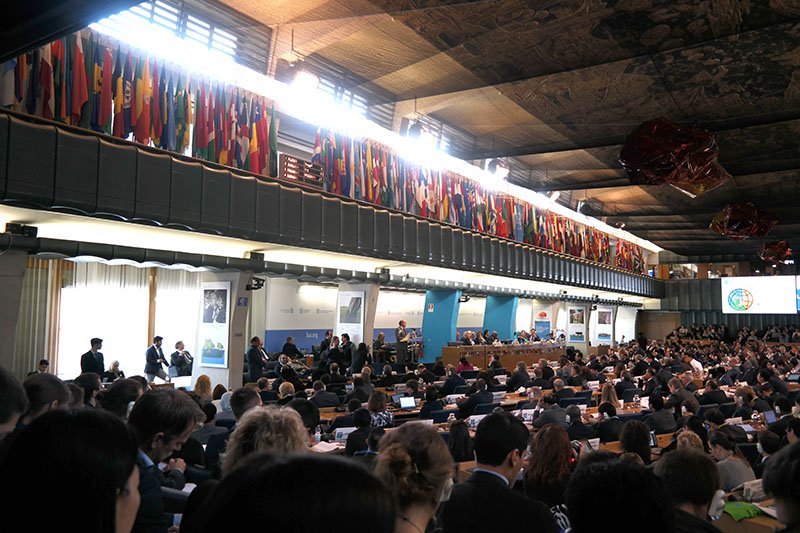#cfs43

- Eradicating extreme poverty, hunger and malnutrition will require "extended partnerships", said José Graziano da Silva, Director General at the Food and Agriculture Organization of the United Nations (FAO), at the opening session of the first of five days of the 43rd session of the UN Committee on Food Security (CFS43) in Rome. - If no one is to be left behind all relevant actors need to be heard , he continued.
The CFS supports the implementation and review of the food security, nutrition and sustainable agriculture dimensions of the 2030 Agenda at the global level. Its activities and resulting policy products can help countries achieve the UN Sustainable Development Goals (SDGs).
This year's meeting builds on the momentum of the agreement on the UN SDGs and the Paris Agreement on Climate Change. Important policy recommendations will be endorsed which will give smallholder farmers - who total 500 million across Asia, sub-Saharan Africa, and Latin America and supply 80% of the food supply in these regions - better access to markets.
In July this year, the CFS High Level Panel of Experts produced an evidence based report on sustainable agricultural development, including livestock, and policy recommendations are also set to be endorsed. They will provide guidance on areas ranging from resource efficiency, climate change, health and safety, and the important roles of diverse livestock systems.
During today's conference at FAO, the CFS launched the report: The State of Food and Agriculture 2016 (SOFA): Climate change, agriculture and food security. The 2016 SOFA report presents evidence on today and tomorrow's impact of climate change on agriculture and food systems.
The Committee is also set to explore the linkages between urbanization, the resulting impact on rural areas, and what together they might mean for ending hunger and malnutrition in both rural and urban areas. For the first time in history, more than 50% of the world’s population now lives in cities and large towns and this figure is expected to rise to 66% by 2050. The lines between urban and rural are blurring and more integrated approaches are needed that can address the dynamic needs of those living across the spectrum.
Outside of regular session times, the CFS week is full of side events. They give the opportunity for networking and understanding different points of view. On Wednesday 19 October, a side event "Low use of antimicrobials and healthy and productive animals - a possible equation?", arranged by the SLU, the SIANI and the Swedish Ministry of Enterprise end Innovation will take place. Elizabeth Backteman, State Secretary to the Minister for Rural Affairs and Professor Ulf Magnusson will be speaking at the event.

